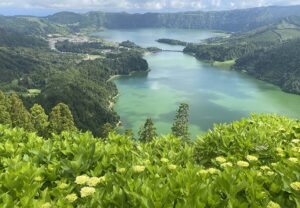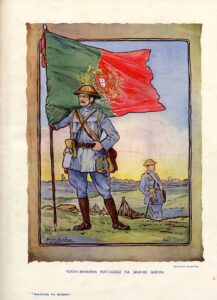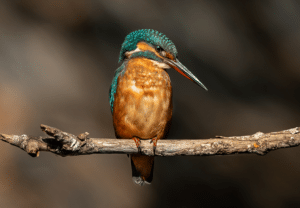
By Margaret Brown
Be warned, a confidence trickster who scammed the Boss and me at the Retail Park in Portimão last summer is now at work in the Retail Park in Guia.
A friend was outside the premises of Conforama when a car drove past slowly, the driver calling out “Hello! You remember me, I’m Victor”. He looked vaguely familiar, was well dressed, pleasant to the eye and my friend thought she had met him before.
They had a short exchange and, in a moment of inspiration, she asked “are you from the Church”? The man exited like a scalded cat, in a car similar to that he was driving when we were scammed. He claims to be soliciting funds for an orphanage on the island of Madeira.
I reported the incident to the Polícia de Segurança Pública at their new premises in Lagos and was told to visit the GNR elsewhere, but failed to do this, having more urgent matters to attend to.
Continuing to struggle in a morass of officialdom that opened up following the death of my husband, the light at the end of a long tunnel shone in all its glory yesterday when I went with my lawyer to visit the Notary.
Probate had been granted, which leaves a few loose ends still to be tied. Archaic and appearing to date back to the period of the revolution, there must be a better way to deal with all essentials needed to achieve this milestone, as well as dealing with those less important details that keep cropping up.
Meanwhile, somewhere between Britain and Portugal a registered packet containing the Boss’ original death certificate has been mislaid, despite assurances by Barclays Bank that it would be returned “within three days”.
Sanity has been maintained through the kindness of friends and the excellence of my two lawyers, but, most of all, the routine of daily life.
One bright spot and a harbinger of spring is the return of winter migrants from southern parts, providing an endless variety of birds picking round our plot of land and among the foothills.
Local residents began pairing off several weeks ago and the storks of Lagos seem not to have migrated last autumn. These began their noisy courtship early in January, at the same time having to guard their nests against marauding first timers seeking to take advantage of an experienced pair’s hard work.
Other members of the same order of ciconiiformes (family Ardiedae) inhabit the Algarve, including several different species of egret and heron as well as bitterns, but mainly the great white egret and grey heron on the wetlands close to Lagos.
The bird in the photograph is that of a juvenile grey heron searching for food in the brackish waters of the Bensafrim river and surrounding marshes, probably about two years old and ready to breed this season.
Meanwhile, the fuss about the presence of horsemeat in a wide variety of pre-packed meals continues to head news channels at the expense of more serious international happenings.
While manufacturers may have deceived their customers, horsemeat itself is a healthy food and equines rarely carry infections dangerous to humans. It is low in fat, good to eat and a normal part of the diet in many European countries.
Having enjoyed this meat in France and Denmark, both cooked and uncooked, only the native Briton appears to be at odds with its culinary value. Perhaps it offends because of our love and close relationship with horses, and beef is acceptable because the majority of people know nothing and care less about where it comes from.
Currently more serious matters are occupying practicing Christians. During the 40 days of Lent before Easter, in the Middle Ages it was preceded by Carnival, there being an ancient custom to clear all alcohol and rich food out of the house before the first day of Lent, Bacchanalian revels resulted which have survived longer than the expected practice of abstinence and self-examination.
Followed next day by the church service of Ash Wednesday, the beginning of fasting and other self-disciplines is marked by the priest placing ash crosses on the foreheads of all members of the congregation, using ashes made from burning palm fronds taken from last year’s Palm Sunday and mixed either with a little water or olive oil, to remain there until they fade away.
After the service, my daughter and I adjourned to our favourite watering hole in Lagos for coffee where the waitress, a delightful young woman, bent down and rubbed my forehead saying “you have a dirty mark here”.
Hearty laughter all round, until we explained the significance of this annual milestone on the road to eternity.
I attended a Quaker boarding school from the age of 6 where religious matters were a personal choice, and at that tender age the principal asked me: “Do you want to go to Church once a week, monthly or not at all”?
Choosing the third option, I learned little about the Quaker way of life or their beliefs. At my late age, wishing to know more about the religious influences that guided my mother’s family from the time of the Huguenot massacre onward, it seems to have been Calvinistic and closely allied to present-day Quakerism.
Then and now, the core of this faith is a living relationship with, and obedience to, God’s Word without the recitation of creeds or the performance of rituals led by a priest, and they do not have Ash Wednesday, there being no mention of it either in the Old or New Testament.
||features@algarveresident.com
Margaret Brown is one of the Algarve Resident’s longest standing contributors and has lived in the Algarve for more than 20 years.


















